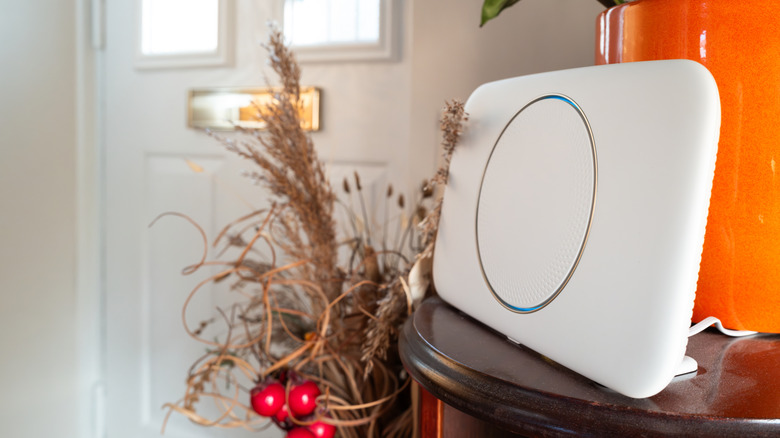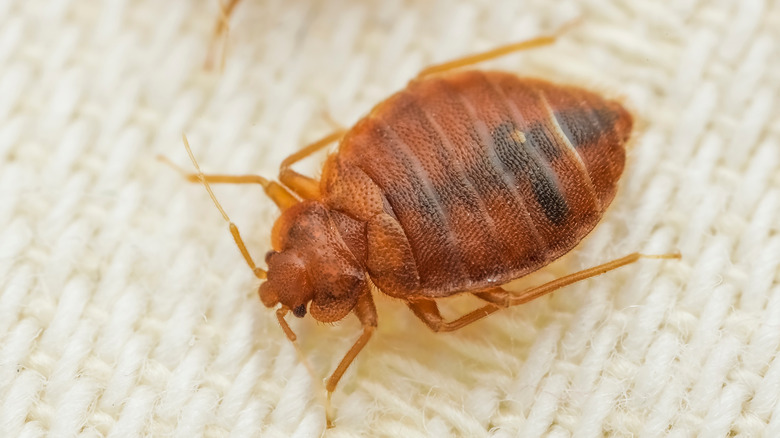Can You Get Bed Bugs From Rented Internet Routers? What You Need To Know
We may receive a commission on purchases made from links.
The first-ever computer bug was a moth that got caught between the relay contacts of a Harvard Mark II computer on September 9, 1947. Since then, the innards of our digital machines have continued to offer a safe, warm, and dry haven for all manner of bugs and insects. I know this first-hand. In over twenty years of running an IT services and repair company, I opened and safely cleaned thousands of pieces of computer hardware. Invariably, there was always fluff and dust. However, I also found spiders, flies, cockroaches, weevils, and many other tiny creatures I had no urge to identify. And, apparently, bed bugs may also find a safe-haven in internet routers.
Personally, I never encountered bed bugs in any device ... or, at least, not that I'm aware of. But bed bugs are tiny creatures, with adults only reaching sizes of about 5 -7 mm and, to be honest, the insides of dirty computers weren't something I ever dwelled on. Although I can't confirm the veracity of the claims that bed bugs have been found in rented internet routers, it's not a claim that I'd dismiss out of hand. So, should the possibility of bed bugs be a factor when deciding whether to buy or rent a router? Let's take a pragmatic look at the possibility.
How bed bugs could hitch a ride in rental routers
Bed bugs are the epitome of unwanted house guests. Once they settle in, they're notoriously difficult to get rid of. Among their unwanted traits are their feeding habits. Like the fabled bloodsuckers of horror movies, these little blighters also avoid daylight before coming out at night to feed. On average, each bed bug will feed every three days, but they can survive for months without feeding. More importantly for the context of this article, despite their name, bed bugs do not restrict themselves to our beds and bedding. Among the other hiding places that bed bugs often use are chairs and couches, underneath loose wallpaper, in drawer joints, and electrical appliances.
The latter is of obvious interest here. The heat that routers generate could be attractive to bed bugs, and the vents that routers use to dissipate this heat offer an easy entry point. When paired with their ability to go for months without feeding, the potential is definitely there for this to happen. For instance, one Reddit poster claims to have seen several bed bugs under the shrink-wrap of a rented Internet router. Even when routers are evaluated and cleaned before being shipped to a new customer, it would be easy to miss such diminutive creatures.
Putting aside whether this poster's particular story is true, it's not out of the realm of possibility that the risk — however small — exists with any rented router from any ISP that offers such a service. Indeed, if bed bugs are hitching lifts in electrical equipment, then routers aren't the only concern — any rented or second-hand electrical device could pose the same small risk.
Bed bugs in routers: How to avoid the risk
First, let's begin by saying that the chances of this happening are very slight. A quick internet search on "documented cases of bed bugs in routers" returned some hearsay arguments and anecdotes but nothing concrete. However, bed bug infestations are on the rise, and this could potentially heighten the risk. Bearing this in mind, it's always better to err on the side of caution.
As with the experience of the Reddit user, it's worth checking the wrapping before opening your router. Also, take note of its general condition. If it looks grimy or just plain unloved, then you could contact the ISP and request a replacement. Thoroughly cleaning the router is not really an option for several reasons. Primarily, you'd need to open the router to do this properly. This would likely void any warranty and/or rental agreement, but it also gives the bed bugs an opportunity to jump ship. Additionally, I'd never recommend cleaning electronics without the appropriate expertise and equipment. I've seen this end badly for electrical equipment on many occasions.
The one sure way to completely negate this risk is to avoid rental routers altogether and simply purchase your own router. Routers like the Netgear 4-Stream Wi-Fi 6 Router can be configured to work with most ISPs and is also a router that won't break the bank. This also allows you to upgrade your hardware, as the rental routers supplied are often pretty basic bits of kit. While the chances of picking up bed bugs through a rental router remains incredibly small, this might seem like overkill. However, if you're in any way concerned, then this remains the safest route.


